Boston attorneys travel to U.S.-Mexico border on fact-finding mission for federal lawsuit
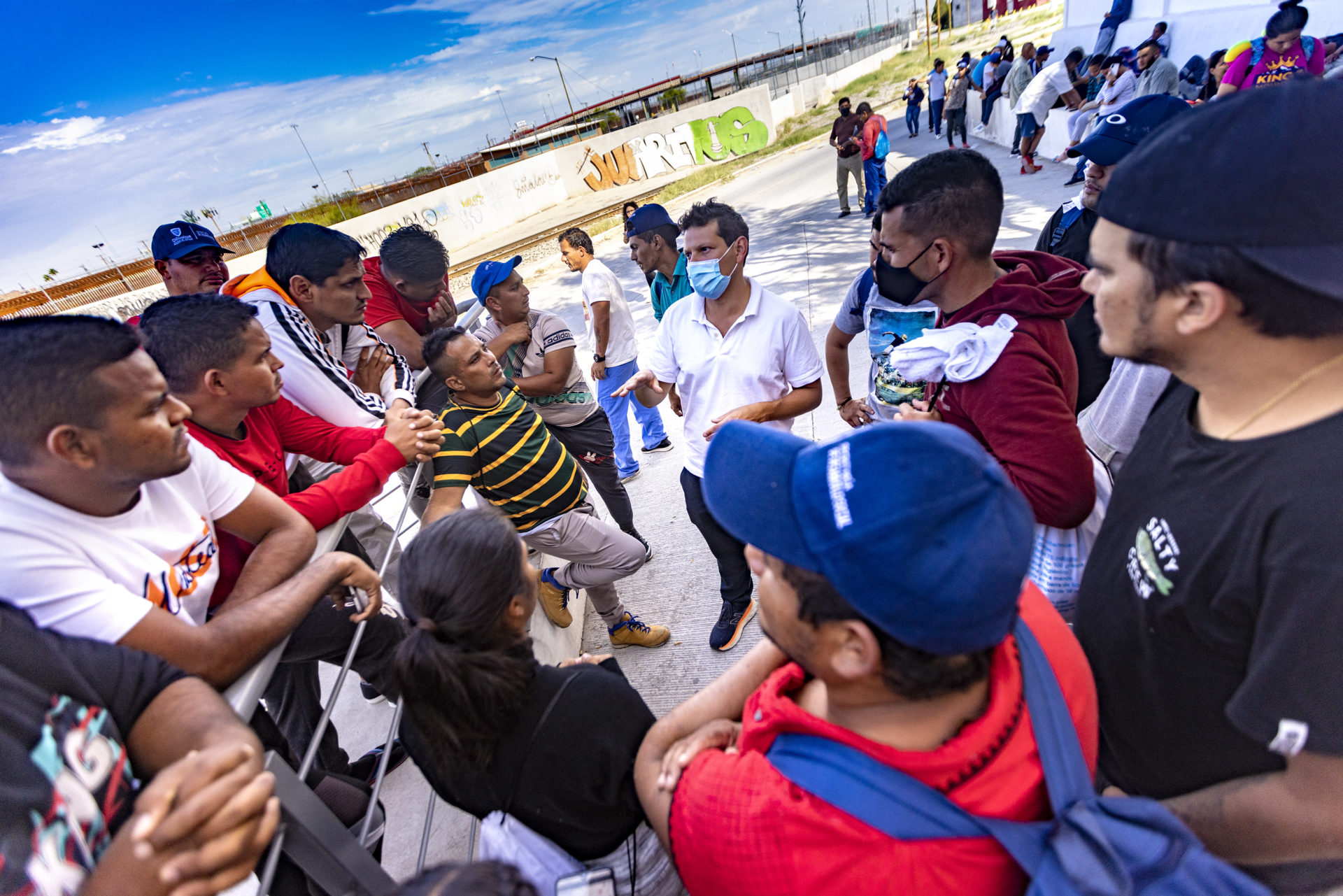
Lawyers for Civil Rights Executive Director, Iván Espinoza-Madrigal, speaks with the Venezuelan immigrants in Ciudad Juarez waiting to cross the border into the U.S. listening to their stories and trying to explain what their options are, if any. (Jesse Costa/WBUR)
The group of Venezuelans who were unexpectedly flown to Martha’s Vineyard in mid-September started their journey in the U.S. at the country’s southern border. The nonprofit Lawyers for Civil Rights is representing them in a class-action lawsuit.
Executive director Iván Espinoza-Madrigal and his team traveled down to Texas on Oct. 10 and spent a week between San Antonio, El Paso and Juarez, Mexico. The attorneys were there on a fact-finding mission, and to understand the conditions for migrants at the border by visiting welcome centers and local nonprofits.
“That connective tissue between what happens at the border and what happens in Boston exists. It is tangible. It is concrete,” Espinoza-Madrigal said. “And it is proven time and time again, as humanitarian crisis after humanitarian crisis brings it to our doorstep.”
Those conditions are constantly changing — including a new policy from the Biden administration announced while the team was on the ground. The new policy limits the number of Venezuelans coming to the U.S. — requiring them to enter via air, and to have a financial sponsor.
Daniel Rodriguez stands outside a community health center in Juarez, Mexico, next to a bridge connecting the city to El Paso. Among the first to be expelled, the 42-year-old says he never would have left his home in Venezuela if he had known about the Biden administration’s new program.
He wants a response from the United States. “Why would they do this?” Rodriguez asked. If those coming from his homeland are bad people, then Rodriguez agrees they should be expelled. But he wants them to be given the opportunity to show who they really are — to work and pay off their debts and support their families. That’s all he’s asking, he says.
“Y de verdad queremos una respuesta por parte de los Estados Unidos. Que por qué hace eso con nosotros? … Estamos de acuerdo que si ingresa a cualquiera de nosotros que sea un delincuente, que lo expulsen, pero que no se nos dé la oportunidad de demostrar quienes somos. Eso es lo único que nosotros pedimos.”
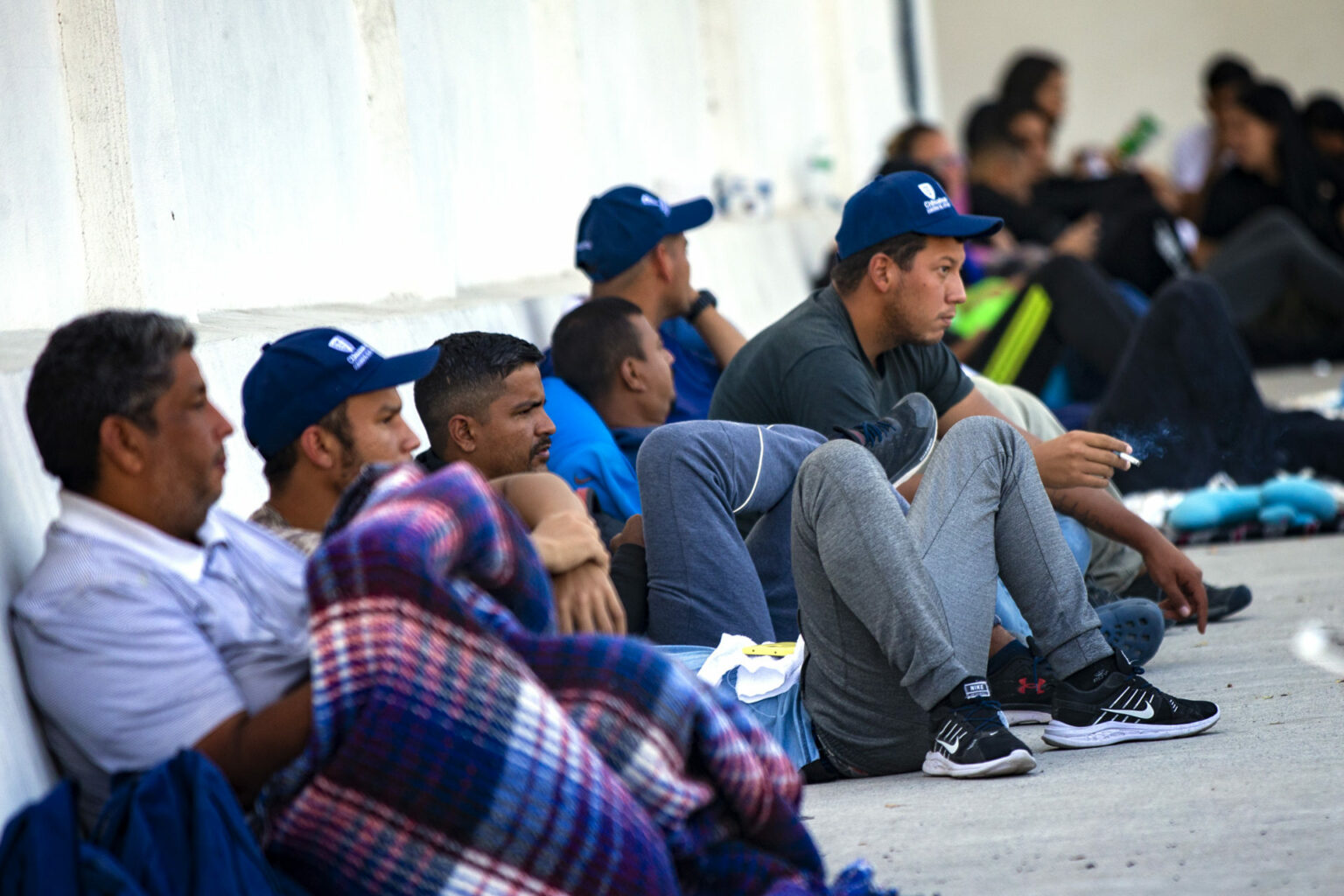
Hundreds of Venezuelan immigrants wait at the Ciudad Jaurez office of Consejo Estatal de Población, (COESPO) the State Population Council in Chihuahua, unable to cross the border into the U.S. (Jesse Costa/WBUR)
He also asks that people be warned to not come before they enter the jungle and witness what he saw crossing the Darien Gap from Colombia to Panama. He wouldn’t have risked his life trekking across nine countries, past bodies of migrants who didn’t make it out alive, he says. He wouldn’t have left his family. He has a place to go but cannot afford a flight.
“Take a look at this,” he said. He shared a message one of his children sent on WhatsApp.
“Por ejemplo. Mira esto.”
“Dad, Chippy already told me. I’m so sorry, my love. All the sacrifice you all went through just to not be allowed in.”
“Papá, ya Chippy me dijo. Lo siento mucho, mi amor. Todo el sacrificio que pasaron. Y todo para que no pudieran pasar.”
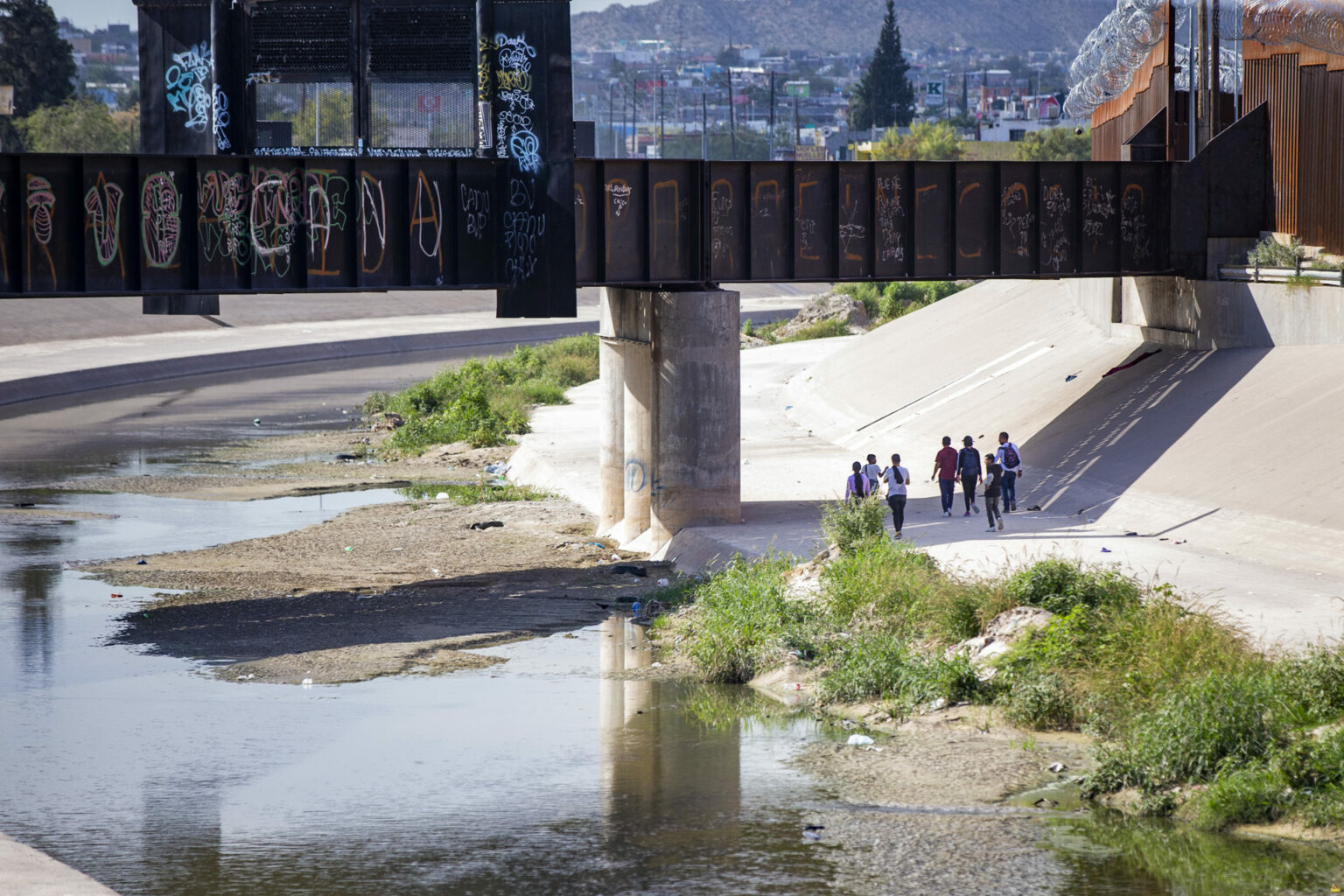
Immigrants walk along the U.S. side of the border in El Paso. (Jesse Costa/WBUR)
Until last week, Rodriguez had reason to think he would have gotten over the border to El Paso.
At its height, there were up to 10 buses a day leaving a city-run migrant welcome center for the northeast, according to Laura Cruz-Acosta, the city of El Paso’s strategic communications director. They were processing 500 to 600 migrants daily, nearly all from Venezuela. This massive operation, in collaboration with local organizations, provided transportation, food and hotel shelters to help people eventually get where they wanted to go.
The city has spent around $6 million in the last four months, she said. From Aug. 23 until Oct. 19, they provided 292 sponsored charter buses.
The welcome center is shutting down with the possibility of opening again when it’s needed. Biden’s restrictions have left many stuck in limbo and leave migrants little recourse, except to register online and hope to qualify for asylum. But more people are on their way. It’s creating a situation at the border that could become unsustainable.
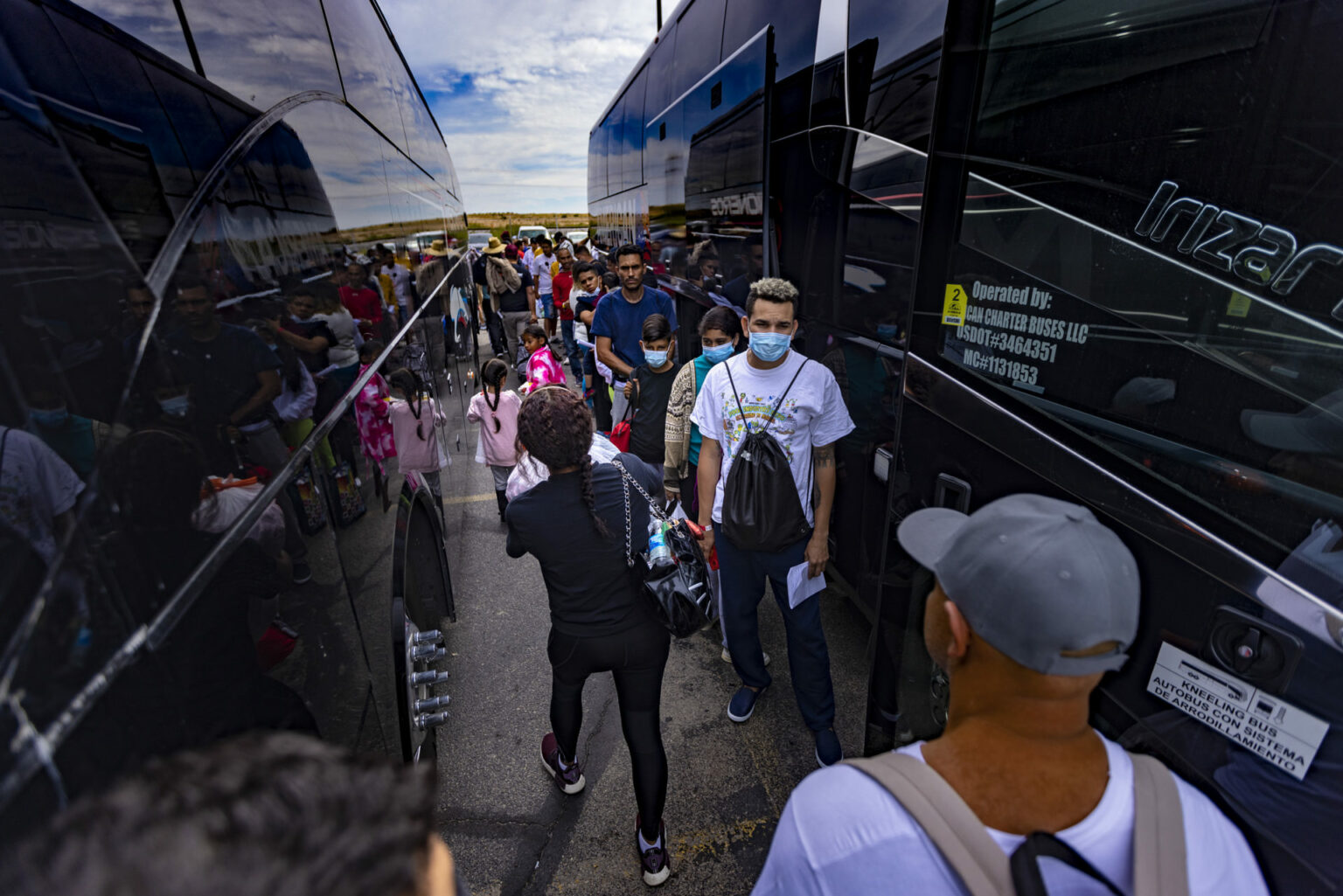
Immigrants prepare to board a charter bus bound for Chicago at the Immigration Welcome Center in El Paso. (Jesse Costa/WBUR)
After being held in detention for three days and having all his belongings taken away, Joeh Avile was placed on a bus. The 23-year-old said he thought they were going to say, “Welcome to the United States.” The crowd was celebrating as they set off. Then the bus turned and they were told, “Welcome to Mexico.”
“Yo pensé que me iban a decir bienvenidos a los Estados Unidos. No. Bienvenido a Mexico…”
Avile is one of many who asked Espinoza-Madrigal for his advice as an immigration attorney. Many tell him they were held in detention for hours or days, their extra clothes and essentials taken away, except for phones, IDs and chargers. He tried to explain the new policy.
The border is closed, he told them. It’s a decision from Washington, not the state of Texas or the city of El Paso. This is coming directly from the federal government. And what they have said is, as of Oct. 12, people can not enter, and Mexico is giving you 15 days to leave.
“La frontera está cerrada. Es una decisión de Washington. No, esto no es el estado de Texas. Este no es el pueblo del paso que lo está haciendo. Ese es el gobierno federal. Y ellos dicen que a partir del 12 las personas no van a poder entrar y México les está dando 15 días para salir.”
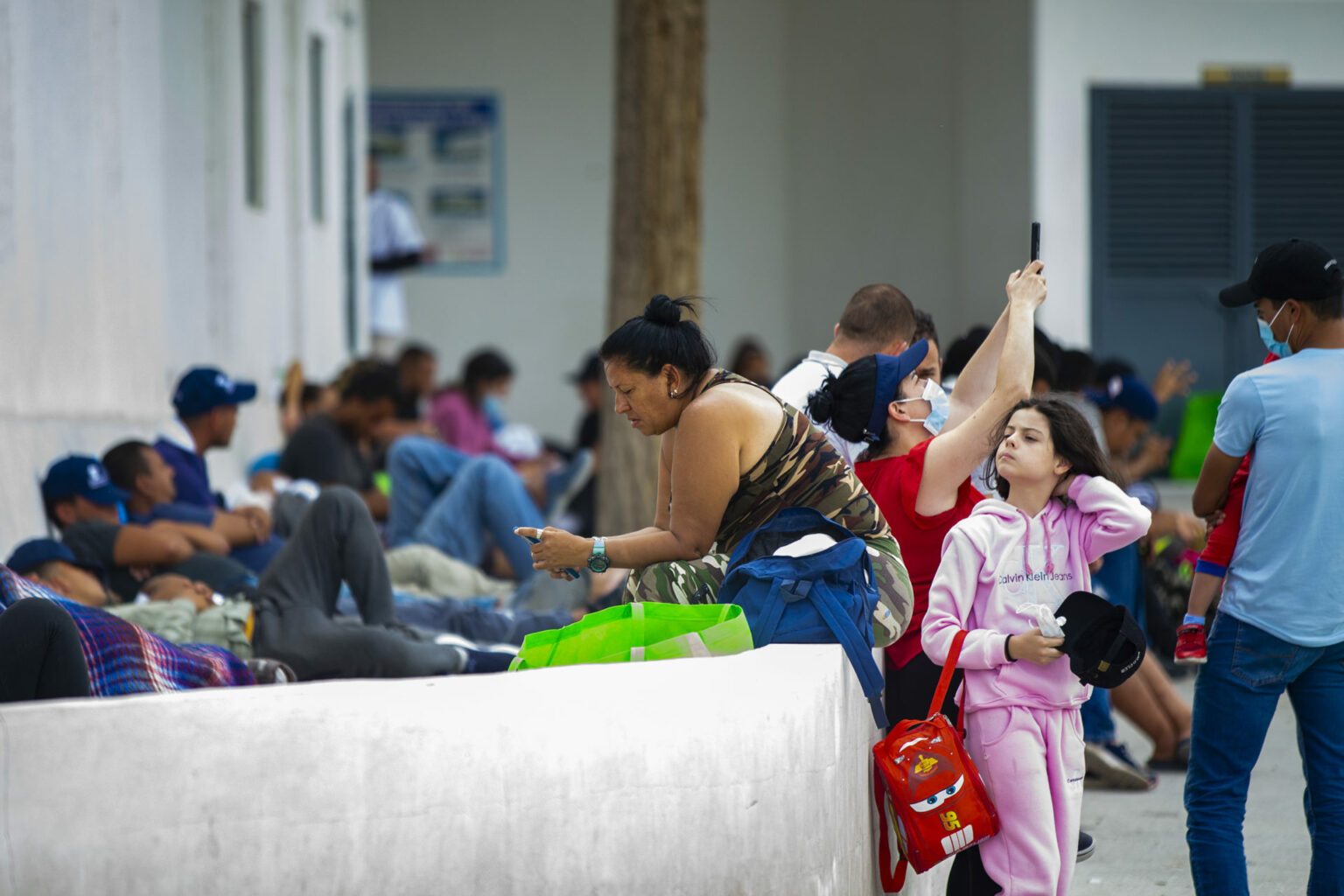
Hundreds of Venezuelan immigrants wait at the Ciudad Jaurez office of Consejo Estatal de Población, (COESPO) the State Population Council in Chihuahua, unable to cross the border into the U.S. (Jesse Costa/WBUR)
Some say they arrived in the U.S. before the new policy took effect. Edgardo Chavez, 21, said he was expelled, but his two brothers let in. He shared a video they sent from a construction site. They’re already working.
Darvis Romero, 32, summarized the frustration they all feel: “We don’t know what’s going to happen to us,” he said. “No one is telling us anything.”
“No tenemos idea de lo que pueda pasar con nosotros. Nadie nos dice nada de cómo están las cosas en realidad, cuáles son los pasos a seguir o que debemos hacer.”
Shelters throughout Juarez are full with migrants removed from the U.S. since the rule took effect. The local government has opened an emergency shelter.
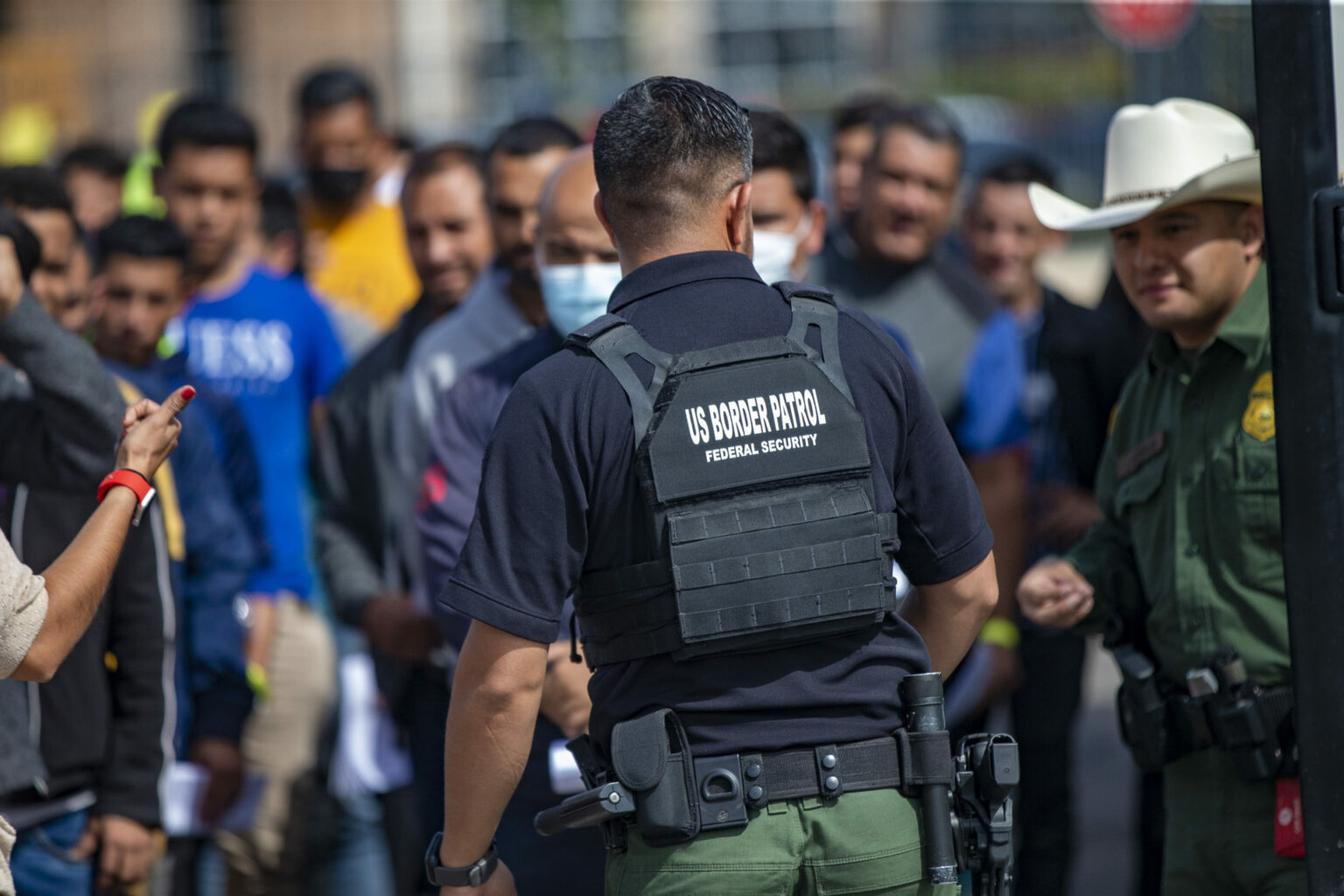
A U.S. Border Patrol agent watches as immigrants line up to be processed at after being picked up at the U.S-Mexico border at the Immigration Welcome Center in El Paso. (Jesse Costa/WBUR)
In El Paso, Espinoza-Madrigal held several “Know Your Rights” workshops for new arrivals at welcome centers, educating them about their paperwork and reminding them to register their new address. These are the lucky ones, those who made it through processing before Biden’s new mandate. But they now face a new set of challenges.
“And now the question is, what does the future look like for them? … That’s not guaranteed,” he said. “So in that respect … the Martha’s Vineyard immigrants are just as unstable as any other migrant who comes to the country and needs to start making their way.”
At this crossroad between two nations, some call the border the new Ellis Island. It greets families of travelers who arrive with the hope this will be just another stop on their way to navigate new cities, new laws and a new language.
This story was originally published by WBUR, a partner of the New England News Collaborative.
